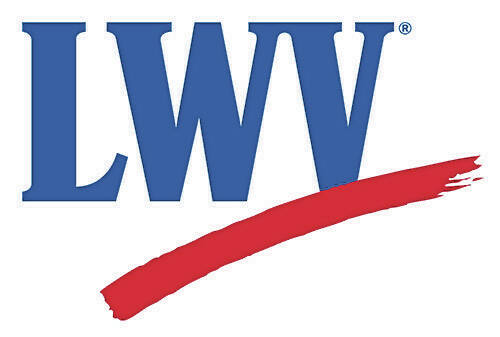“Right now, soil might be the last thing on your mind. But at this moment, when the future of our planet and humankind is at stake, nothing could be more important than regenerating the ground beneath us.” This is the message from the nonprofit organization Kiss the Ground.
The award-winning documentary, “Kiss the Ground,” shows that regenerating the soil is one way we can reverse global warming. Stunning animation and striking visuals from five continents were provided by NASA and the National Oceanic and Atmospheric Association, or NOAA. The urgent call to action is delivered through the voices of leading NOAA scientists, ecologists, climate experts and environmental activists.
The League of Women Voters Johnson County will host a free showing of “Kiss the Ground” at The Historic Artcraft Theatre, 57 N. Main St., Franklin, on Sept. 17 at 2 p.m.
About 95% of our food comes from the soil. About 7.5% of the earth’s surface supplies the soil we rely on for agriculture. Clean air and water, bountiful crops and forests, productive grazing lands, diverse wildlife, and beautiful landscapes depend on healthy soil. The U.S. Department of Agriculture, or USDA, defines healthy soil as the continued capacity of soil to function as a vital living ecosystem that sustains plants, animals, and humans. The benefits of maintaining healthy soil go far beyond crop production.
Soil erosion damages soil health. Degraded land cannot support the plants that absorb climate-warming carbon dioxide. A University of Massachusetts Amherst study shows that soil erosion is the most serious soil-degrading process. U.S. agricultural fields have lost an average of 0.0787 inches of soil per year over the past 160 years. This is nearly double the rate the USDA considers sustainable.
Each year, over one hundred million tons of soil erodes from Indiana’s cropland, pastures, forests, and other places where people live, work, and play. Another seventeen million tons of soil erodes from stream banks, gullies, roadsides, and construction sites. Better land management can help keep soil intact so it can grow more carbon-sucking vegetation.
The USDA reports that soil erosion causes a loss of about $44 billion per year. This value includes lost productivity, sedimentation, and water pollution. Lost farm income is estimated at $100 million per year.
Unchecked climate change will worsen erosion. The Intergovernmental Panel on Climate Change found that soil, when cultivated without conservation practices, is currently eroding up to 100 times faster than it is forming. Emissions-driven temperature changes decrease agricultural production, land value, and human health.
For years, media pundits, partisan think tanks, and special interest groups funded by fossil fuel companies have raised doubts about the truth of global warming. They downplay and distort evidence of climate change, lobby for policies that reward polluters, and try to undercut existing pollution standards. The disinformation misleads and confuses the public about the growing consequences of global warming and makes it more difficult to implement the solutions we really need. Constructive climate action is more difficult under the influence of special interests.
The good news is, there are practical ways to improve soil health. Regenerative agriculture uses nature’s proven, time-tested principles to rebuild our soil while removing massive amounts of carbon from the atmosphere. Regenerative agriculture can balance our climate and it can shift debts to profits. Average agricultural debt is increasing by 4% annually; regeneration practices can drastically decrease farmers’ input costs.
Regenerative agriculture is a simple solution and one that is being practiced by farmers right here in Indiana. For example, Rick Clark, a fifth-generation farmer in Warren County Indiana began transforming his 7,000-acre row crop farm 13 years ago. He is now saving nearly $860,000 every year on input alone.
“Kiss the Ground,” helps us understand regenerative agriculture and how we can protect and improve our soil so it can nourish future generations of plants and animals — including humans. Everyone can help create a healthier climate for our families and our future!
We look forward to seeing you on Sept. 17 at 2 p.m. at The Historic Artcraft Theatre. Get your ticket at the door or by visiting our website https://lwvjcin.org.
LWV Johnson County member, Dee Johnson wrote this column. To learn more about LWVJC, visit lwvjcin.org. Send comments to [email protected].




